As the Beale Street Music Festival crowds pressed in, a college-aged man with a bag turned from the Ounce of Hope tent. “It’s probably bullshit, but I’m going to try it,” he said to the next person in line.
“It’s not bullshit,” the person replied. “It works.”
“It” was a chocolate bar infused with delta-8 THC. Products containing the chemical derived from the cannabis plant are now available everywhere from convenience stores to cannabis dispensaries. For recreational users, like the anonymous music fest attendee, it promises a safe and legal high. For the growing ranks of medicinal users, it promises relief from a variety of ailments, from anxiety to chronic pain. Even as debates about the legal status and effectiveness of delta-8 have swirled, one thing is certain: It is increasingly popular.
“We’re seeing a humongous switch in the marketplace,” says Collin Bercier, founder of the Memphis-based cannabis company Ounce of Hope.
When Ounce of Hope opened two years ago, CBD products were flying off the shelf. Now, gummies, brownies, chocolates, and cookies containing delta-8 THC are all the rage. “It just has blown everything else out of the water,” Bercier says.
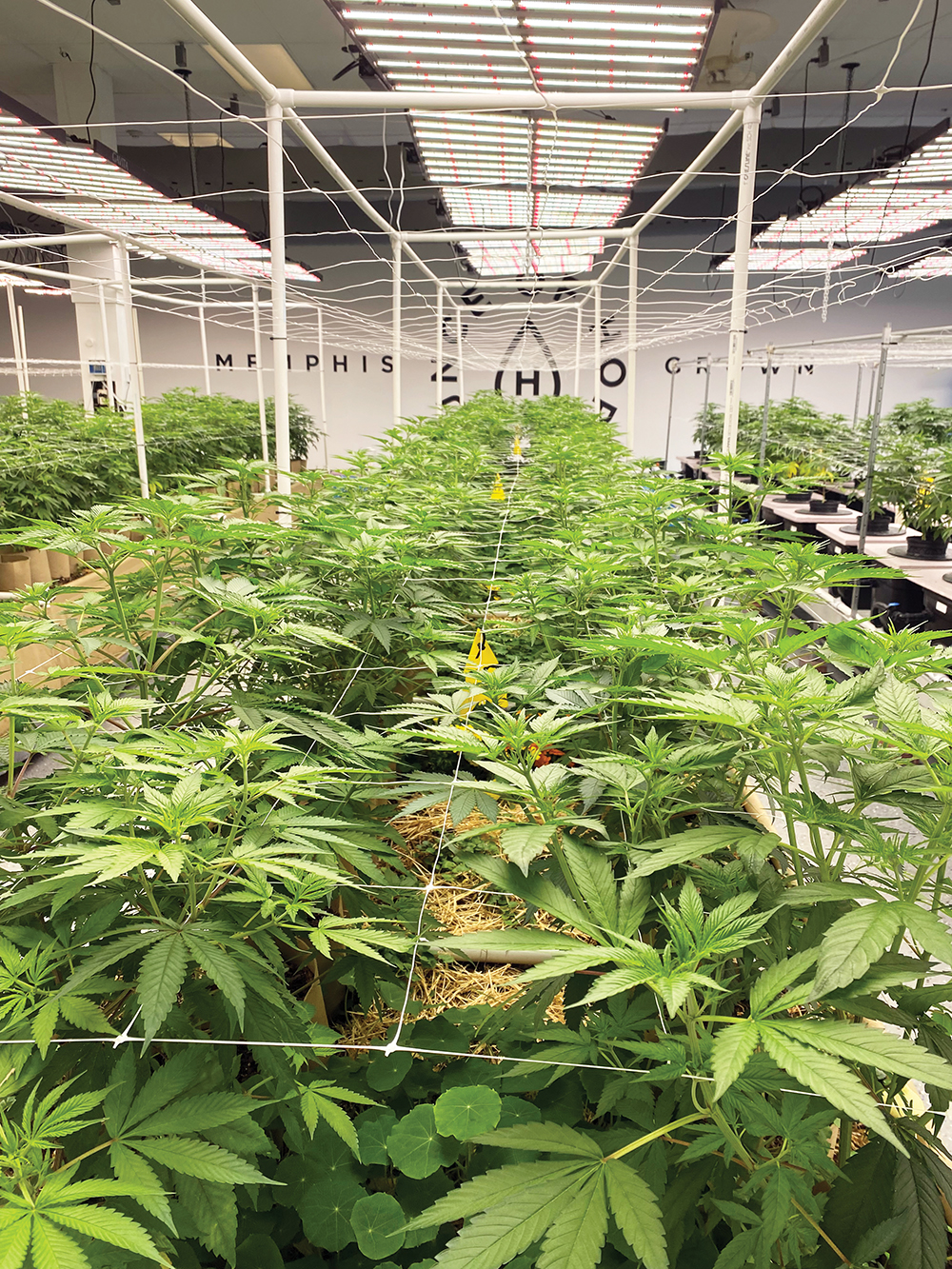
Hemp History
Bercier, a native of Lafayette, Louisiana, decided to enter the cannabis business after his experiences caring for his mother, who was stricken with multiple sclerosis. “One of the things that always perplexed me was, why does my mom not have access to even try marijuana?” he says. “Because it was illegal, and still, to some extent, is illegal in some of these Southern states. So I watched my mom live the rest of her life in a nursing home on 14 different medications, where one medication seemed to just be for remedying a side effect from another medication. And as her quality of life really deteriorated, she didn’t even have the option of trying a more holistic approach. Look, would it have cured her MS? No. But would it have made her quality of life better? Absolutely.”
Cannabis has a long history of medicinal use. The first evidence of its cultivation dates back more than 10,000 years, making it one of the first plants domesticated by humans. It was prized for its analgesic properties and for its ability to calm stomachs and enhance appetite. Not only that, but the plant’s long, strong fibers were ideal for making rope and fabric. The psychoactive aspect, achieved by smoking the flowers of the female plant, made it a staple of religious rituals. Hindu scriptures say ganja was a gift from Shiva to ensure the happiness of his people. Scythian priests were known as “those who walk on smoke clouds.”
Bercier became an outspoken advocate. “You can find videos of me and my mother online talking to the news about marijuana legalization in Louisiana,” he says.
In 1937, the Marihuana Tax Act made both psychoactive cannabis and non-psychoactive industrial hemp effectively illegal in the United States. For the rest of the 20th century, cannabis was demonized in America, particularly after Richard Nixon, who associated it with leftist hippies, declared a “war on drugs” in 1971. Nevertheless, pot remained popular. In 1996, after a long campaign by a coalition of cancer, AIDS, and epilepsy patients, California became the first state to legalize it for medical purposes. Medicinal marijuana is now legal in 37 states, and recreational use is legal in 19 states.
Louisiana legalized medical marijuana in 2015, shortly before Bercier’s mother passed away in 2016. “I went after a license in Louisiana and was not successful in that,” he says.
Instead, he set his sights north to Memphis.

Cannabis Chemistry
Because of its legal status, cannabis has not been extensively studied by scientists. Cannabidiol (CBD) was first isolated in the mid-1940s. In 1964, Israeli scientist Raphael Mechoulam discovered tetrahydrocannabinol (THC). Since then, hundreds of additional “cannabinoids” have been isolated from the cannabis plant. Humans produce our own cannabinoid-like chemicals, and nearly every organ in our body has receptors which respond to them. The endocannabinoid system remains mysterious, but it seems to help maintain the delicate balance of chemical reactions which influence sleep, cognition, memory, and emotion. Different cannabinoids, such as CBD and THC, bind with different receptors and thus create different effects in users. Delta-9 THC was identified as the psychoactive chemical which produces marijuana’s distinctive euphoria.
In 2018, Congress implemented a major overhaul of agricultural regulations. One clause in the Farm Bill was intended to legalize industrial hemp — the cash crop George Washington grew at Mount Vernon — by specifically limiting the content of delta-9 THC to less than 0.3 percent by weight. No other cannabinoids were mentioned in the legislation. This allowed products containing other cannabinoids such as CBD to be sold, and a gold rush ensued. Today, cannabis is in a legal gray area, permitted in some circumstances and prohibited in others. Meanwhile, hundreds of thousands of people, many of them Black and Hispanic, are still in jail for marijuana possession.
Bercier, a University of Memphis alumnus, returned to the Bluff City to open Ounce of Hope. Today, the company operates an aquaponic growing operation in South Memphis, where they create products for their stores. “When the hemp Farm Bill went into effect, Tennessee had their arms wide open and was allowing businesses to thrive at the time. Now, there is a thriving hemp industry in Tennessee.”
Local Heroes
Gabriel DeRanzo discovered marijuana the way many people have. “When I graduated high school, we were having field parties over in Middle Tennessee. Let’s park our cars and get somebody to buy us booze, and that’s a Saturday night. I just couldn’t cram another Zima down my throat, but dammit, I wanted to have fun. It seemed like a magical thing to me — instead of drinking these three to five containers of liquid. I can just take a couple of inhales off of that magic cigarette.”
Pot didn’t come with hangovers and could even be useful. “It helped me to get in my own head. So while I was riding my skateboard, I was in the zone, you know? I was focused.”
Inspired by his experiences on the board, DeRanzo teamed with artist Greg Cravens to create Stoned Ninja, a comic book character whose martial arts skills are improved by a mystical strain of cannabis. Soon, the brand expanded to include rolling papers, T-shirts, and, in 2019, CBD products. Late last year, another opportunity came along.
The chemical formula for tetrahydrocannabinol is C21H30O2, but those carbon, hydrogen, and oxygen molecules can be arranged in different configurations, called isomers. The cannabis plant produces mostly the delta-9 isomer, distinguished by a double carbon bond in the ninth position of the carbon chain. But in recent years, more THC isomers have been discovered. Delta-8 THC features a double carbon bond in the eighth position of the carbon chain. Chemists discovered that delta-8 fit the same receptors as delta-9, but the psychoactive effects were subtly different. “It’s a more mellow experience, and therefore, it allows you to be more functional while you’re kind of getting the benefits of the less anxious and the more calm and relaxed elements of cannabis,” says DeRanzo.
DeRanzo’s friends Bryan Kiestler and Bobby Coomer had been experimenting with cannabis edibles. For Kiestler, it was a way to deal with his anxiety disorder. “I couldn’t even sit in a room with people without severe panic. I was having seizures. I dealt with that my whole life. … I grew up in a very rural, very conservative area that taught me nothing but the bad parts of [cannabis]. But as I grew and learned and studied the plant, I was like, wow, this stuff was amazing! Out of personal necessity, I started playing with it and developed quite a few things for myself.”
Kiestler had culinary training and developed his own edibles by studying classic candy-making techniques. He says his proprietary recipe enhances the bio-availability of the cannabinoids. Kiestler and Coomer started Ghost Kitchen 901, a company to produce cannabis edibles, and teamed up with DeRanzo to produce a line of Stoned Ninja delta-8 gummies. “Delta-8 is federally legal in complying with the 2018 Farm Bill, as long as it contains less than 0.3 percent delta-9,” Coomer says.
The Nicer Cousin
The cannabis plant naturally produces more delta-9 THC than delta-8, and over the years, breeders have created ever more potent strains. In the late 1980s, most street marijuana contained less than 10 percent delta-9 THC. Now, there are strains on the market that contain upwards of 30 percent. Those higher doses of THC can cause anxiety and paranoia in some users. “Some people don’t want to get that high,” says Bercier.
In January 2022, the University at Buffalo and the University of Michigan released the results of a joint study on delta-8 THC. After surveying more than 500 users, researcher Dr. Jessica Kruger says, “We found that people who are utilizing delta-8 THC feel fewer negative side effects, and they are using it in modalities that are safer, like vaping or edibles or using topically.”
One of the participants in the study called delta-8 THC “delta-9’s nicer cousin.”
Many sources claim delta-8 is half as potent as delta-9, but that can be deceiving. The effects vary by individual user and are dependent on many factors. “I’m a 44-year-old man, I weigh 230 pounds, and I literally can’t take more than 5 mg of delta-8 THC,” says Bercier. “You meet some of my employees, females who don’t even weigh 115 pounds, and they’re eating 100 to 200 mg of delta-8 THC a day with no problem.”
A THC overdose won’t kill you — unlike alcohol, no deaths have ever been reported — but it can cause panic attacks, confusion, paranoia, and nausea. Delta-8 is primarily consumed via edibles, and unlike smoking, it can take time for the first effects to be felt. A user who isn’t feeling anything yet can be tempted to try another tasty gummy or brownie, only to find later that they have eaten way too much. DeRanzo says, “If you’re not an avid smoker, or if you’re trying out new cannabis products, just take a bite out of it. Eat half of a gummy, wait about 30 minutes, and see if it’s doing anything for you. If you like where it’s going, pop the rest of that sucker. But I will definitely tell people, don’t take a whole pack of Stoned Ninja gummies and face all five of them out of the bag all at once because it will hit you pretty hard.”
The Legal Fight
Since 2018, the number of cannabis products has proliferated. It’s not just CBD and delta-8 — many other “minor” cannabinoids, such as THC-0 (said to be more potent than delta-9) and hexahydrocannabinol (HHC) have been identified and marketed. This has caused some state legislatures to attempt to crack down on the trend.
Evan Austill is an attorney and president of Southern Biomedical Industries, the parent company of Ghost Kitchen. He has been on the forefront of lobbying the Tennessee legislature to clarify the laws, legalize cannabis, and tax and regulate the industry. He says cannabis’ legal limbo has created complications for businesses trying to go legit. “A lot of people think cannabis is a wonderful place to make a bunch of money, but it’s really challenging. Imagine trying to be in a line of work where you weren’t allowed to have a bank account, you couldn’t take credit card payments, you were not allowed to advertise, you couldn’t use e-commerce, you couldn’t use social media. You can only pay in cash, and everybody thinks your cash is dirty.”
It’s a lesson Ounce of Hope recently found out the hard way. “We had no issues with credit card processing for two, almost three years,” says Bercier. “Then all of a sudden, the credit card processor just cuts us off overnight, doesn’t really tell us why, and won’t even return our calls.”
The problems have taken their toll, says Bercier. “When I got into the industry in Tennessee back in 2019, they had about 4,000 licenses. Currently, in 2022, we’re operating in Tennessee with about 750 licenses — and I don’t believe the majority of those are actually active anymore.”
Earlier this year, state Representative William Lamberth (R-Portland) introduced legislation that would have effectively outlawed all cannabis products in Tennessee. “It was a very carefully considered plan,” says Austill. “That legislation was written to kill the entire industry. Manufacturers and retailers had no idea. There was no collaboration, and no work was done around that legislation with the Department of Agriculture.”
Austill and other cannabis industry representatives successfully lobbied to stop the bill. “The people who suffer the most in an unregulated market, when there are bad actors out there, are the guys who are actually trying to do it right,” he says. “Let’s regulate this. Let’s license this. Let’s tax it like every other thing in Tennessee that we sell. We had an agreement at one point, but I guess the deal kind of fell apart at the end. So the legislature leaves delta-8 out. This is an unregulated product, which is scary to some people — and there’s some reason why there should be concern. Cigarettes, alcohol, firearms, we’re only too happy to tax and regulate. Yet this, we seem to want to sort of leave outside as the bogeyman.”
Still, Austill believes there is hope for progress in the next legislative session. The momentum is certainly on the side of legalization, as the data from states like California, Colorado, and Virginia show that the scariest predictions of the drug warriors haven’t come to pass. “We don’t see opioid deaths going up. Bank robberies don’t go up. DUIs don’t go up. Usage by teenagers does not go up. Why is it that the negative consequences never seem to take place?”
…………………………
The Edibles
Curious about cannabis edibles? Here are some of the best products available in Memphis.
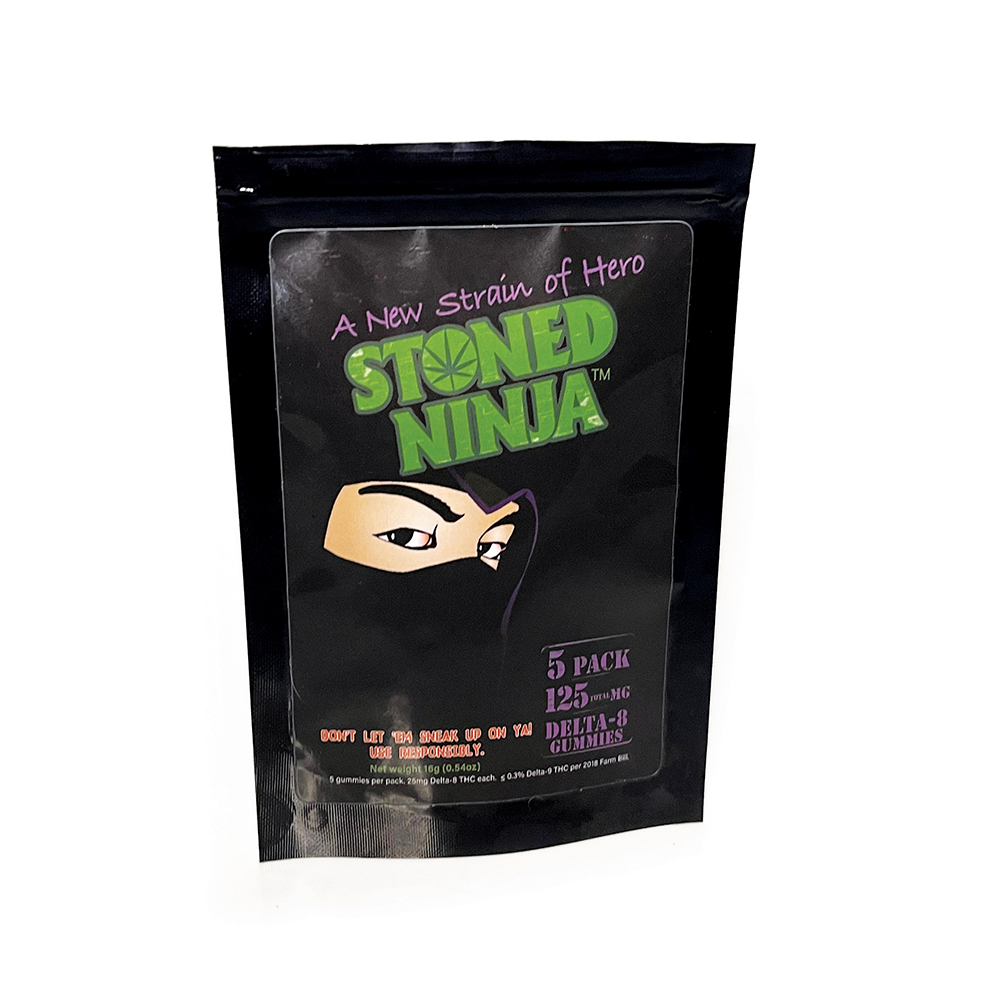
Stoned Ninja Delta-8 Gummies
Produced with Ghost Kitchen’s recipe, these 25 mg gummies take effect faster than most edibles. A good, basic delta-8 gummy for both the experienced user and newbies.
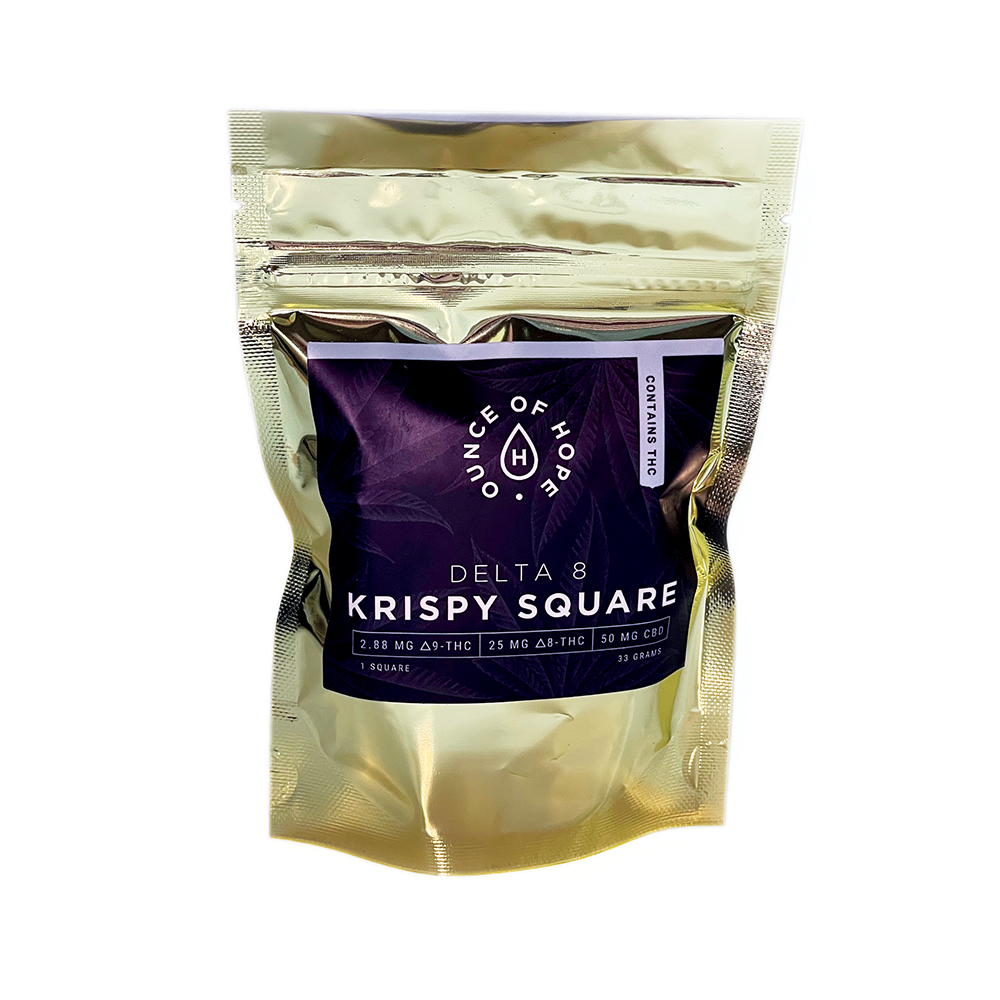
Ounce of Hope Delta-8 Krispy Squares
These tasty treats contain a 2 to 1 mixture of CBD and delta-8 THC, creating an anxiety-free experience that comes on smooth.
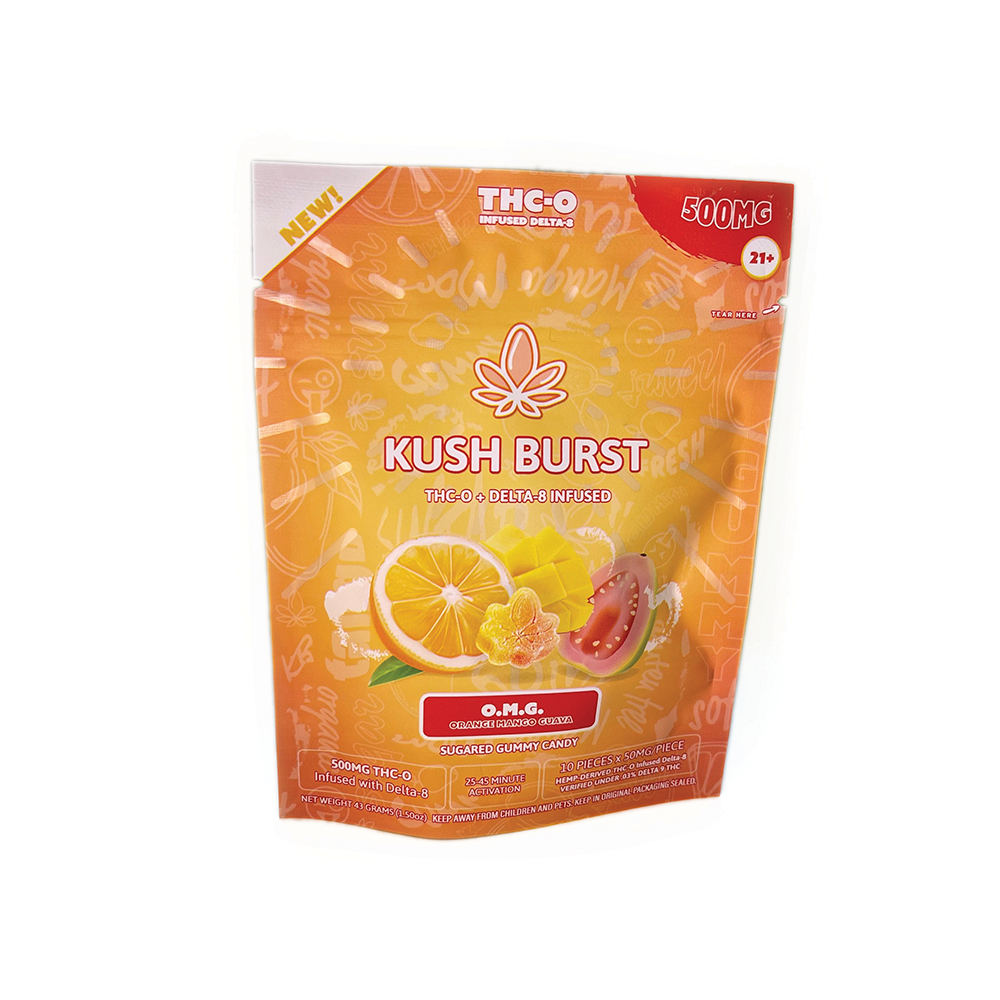
Kush Burst O.M.G.
Whatever Shop reports the orange/mango/guava-flavored gummies are its most popular edible. Containing a powerful mixture of THC-0 and delta-8, these 50 mg edibles are not for the faint-hearted.

Ghost Kitchen Lemon Freeze HHC Gummies
HHC is touted as the next big thing in cannabis. These 25 mg gummies produce a mild euphoria but leave you clear-headed and productive.


 Body and Mind
Body and Mind 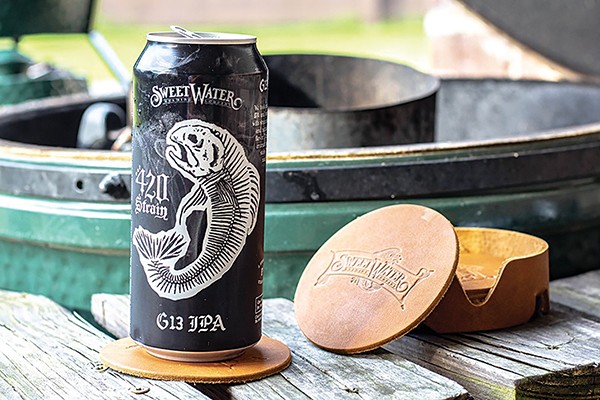 SweetWater/Facebook
SweetWater/Facebook  Greg Cravens
Greg Cravens  Greg Cravens
Greg Cravens 